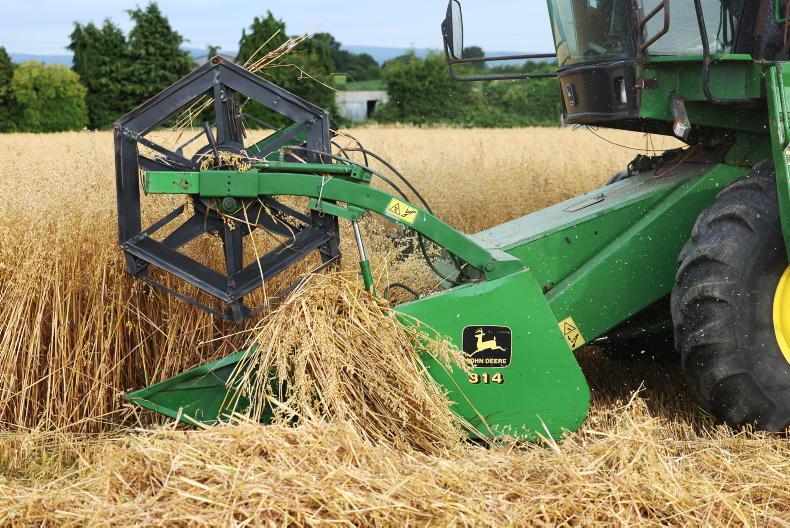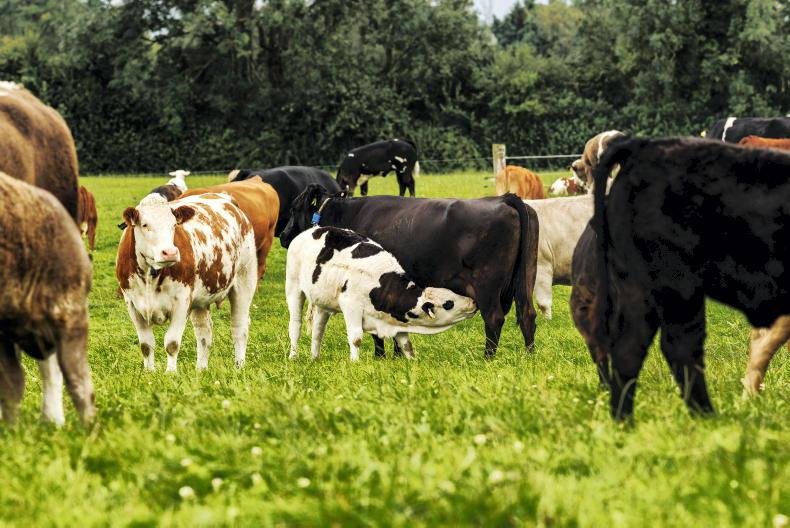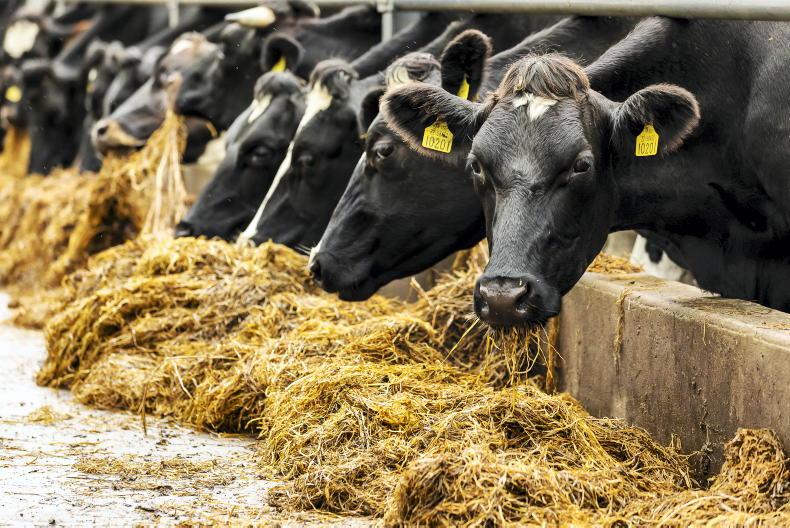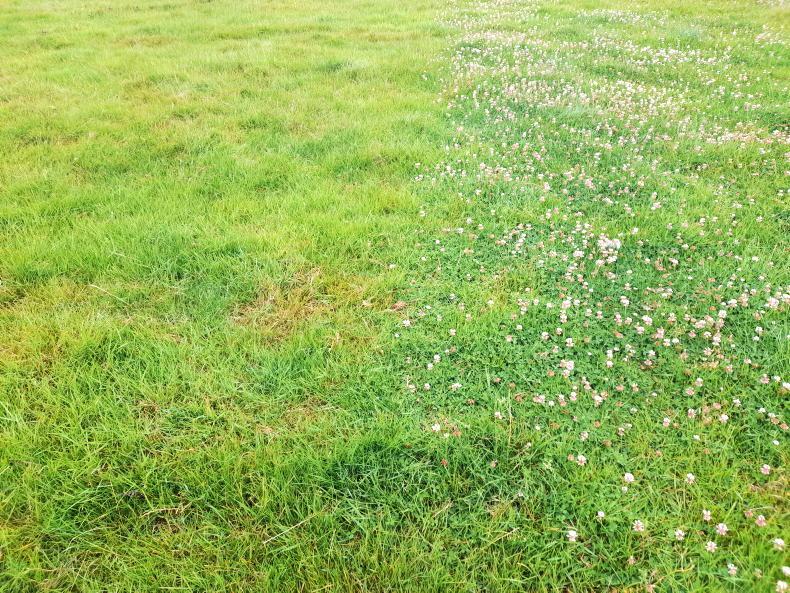The 2024 multi-species sward measure and 2024 red clover silage measure opened for applications this week.
The scheme is broadly similar to the 2023 scheme, with the exception of the application process, which is now included in the application process for the Basic Income Support for Sustainability (BISS).
The Department has collated some frequently asked questions and answers.
The first section deals with questions which are common across both schemes and this is followed by a section on each scheme.
Q. Who can submit an application?
A. A farmer or his/her FAS approved-adviser can apply for the measure. From 2024, applications must be made through the BISS online application system before or on 15 May 2024.
Q. What will the payment rate be?
A. The Department will make a financial contribution of up to €300 per hectare for the establishment of multi-species swards or red clover silage swards to farmers participating in the measure. This aid will be provided to participating applicants to offset part of the cost that farmers will incur in the establishment of these swards. A reduced payment rate per hectare will apply as appropriate if eligible applications exceed the available budget for the measure. The maximum area payable under the measure is 20ha.
Q. Will the measure be operated similar to previous years?
A. No, the application and payment has moved to platform for BISS and other area-related schemes. Applications will be submitted through the 2024 BISS online system. Swards sown between 16 July 2023 and 15 July 2024 are eligible under the measure.
Q. Will agri retailers or co-ops need to be registered with the Department to participate in this measure?
A. No. However, only seed that meets the Department’s multi-species sward species mix or red clover silage species mix is eligible for grant aid.
Q. Can farmers in the Organic Farming Scheme participate in the measures?
A. Yes. Where there is no availability of the required organic seeds, then a derogation application must be made by the applicant to the organic control body for the use of non-organic seed which must be non-chemically treated.
Q. Can a farmer who did not/will not submit a 2024 BISS application enter the measure?
A. No, from 2024, to avail of the measure, applications must be made through the 2024 BISS system. Participants will also have to declare the correct crop code for the relevant parcel(s) on their BISS application.
Q. How will I know if my application was successful?
A. As part of the BISS online application process, applicants will get a summary of the schemes and measures they have applied for through the BISS system, including the multi-species sward measure and the red clover silage measure. The summary will give details of the parcels included under the measure.
Q. How do I submit my claim for payment?
A. Payment under the measure will be based on the information captured at application. There is no separate payment claim. However, from August 2024, applicants will receive notification through the BISS online system to upload on to the BISS system copies of receipts and seed labels and, if requested, geo-tagged photos of the established crop. Failure to uploaded requested documentation and information may result in rejection from the measure.
Q. Are partnerships eligible to apply?
A. Yes, farmers in a farm partnership registered with the Department are eligible to apply. All partners are jointly and severally responsible for adhering to the measure’s terms and conditions.
Q. Can partnerships get increased levels of contributions where there are two or more in the partnership?
A. No, each application will be treated as a single entity and be subject to the maximum area of 20ha.
Q. How will applicants be selected if the measure is oversubscribed?
A. In the event of eligible applications being received in excess of the available budget for the measure, a reduced payment rate per hectare will apply.
Q. Will cross checks be carried on seed purchased versus area claimed under the measures?
A. Yes. The amount of seed purchased must support a minimum seeding rate of 30kg/ha. For example, a farmer claiming 2ha of multi-species sward will be required to have purchased a minimum of 60kg of multi-species seed, ie 5x12kg bags. Checks will also be carried out that the minimum seeding rate per hectare for the six required species has been met.
Q. When can I buy the seed mixture?
A. Only seed purchased after 15 July 2023 and before or on 15 July 2024, the closing date for sowing the seed, can receive aid under this measure.
Q. Are all land areas eligible to be included in the measures?
A. No. The following areas are excluded from the multi-species sward measure:
Commonage land, Natura 2000 sites, NHA designated land, as well as environmentally sensitive permanent grassland or land within archaeological monument buffer zones.Parcels sown under the 2023 or 2022 multi-species sward measure.Parcel included under the eco-scheme agricultural practice 8 (MSS eco-scheme).2024 multi-species sward measure
Q. What is the multi-species sward measure (MSSM)?
A. This measure aims to incentivise farmers to sow multi-species swards, which will reduce the reliance on nitrogen fertilisers and promote a more sustainable method of farming. Other benefits arising from this measure include improved biodiversity, greater tolerance to drought conditions and reduced anthelmintic requirements due to the presence of chicory and plantain.
Q. Is there a minimum number of species that should be included in the mix?
A. Yes, the Department has a set list of plant species that must be included in the MSSM and the minimum quantities of each type of seed that must be sown per hectare.
Q. Can I include additional species above the minimum requirement in the mix?
A. Yes, the six species mix required by this Department must at least contain the minimum quantities per hectare set out in the terms and conditions. If desired, additional species may be added in line with good agricultural practices for the establishment of multi-species swards.
Q. Do I need to declare the area I will be sowing under multi-species sward at application stage?
A. Yes, as part of the online BISS application system, the applicant or agent must select and tick the option to participate in the measure. In the land details section of the application, the applicant must select the parcel(s) they have or are sowing the multi-species sward in and select the crop in one of the following crop types for the relevant parcel(s):
Permanent pasture (MSSM) - for reseeding permanent pasture with multi-species sward mixture.Grass year one (MSSM) - for multi-species sward mixture following an arable crop.2024 red clover silage measure
Q. What is the red clover silage measure (RCSM)?
A. The measure aims to incentivise farmers to sow red clover silage mixed swards, which will allow for a more environmentally friendly production system. Red clover is a high-yielding legume, which converts atmospheric nitrogen into a plant-usable form. Due to its nitrogen-fixing ability, red clover silage is higher in protein than conventional silage and combined with its ability to yield over 14t DM/ha should allow farmers to reduce their concentrate feed bills.
The 2024 multi-species sward measure and 2024 red clover silage measure opened for applications this week.
The scheme is broadly similar to the 2023 scheme, with the exception of the application process, which is now included in the application process for the Basic Income Support for Sustainability (BISS).
The Department has collated some frequently asked questions and answers.
The first section deals with questions which are common across both schemes and this is followed by a section on each scheme.
Q. Who can submit an application?
A. A farmer or his/her FAS approved-adviser can apply for the measure. From 2024, applications must be made through the BISS online application system before or on 15 May 2024.
Q. What will the payment rate be?
A. The Department will make a financial contribution of up to €300 per hectare for the establishment of multi-species swards or red clover silage swards to farmers participating in the measure. This aid will be provided to participating applicants to offset part of the cost that farmers will incur in the establishment of these swards. A reduced payment rate per hectare will apply as appropriate if eligible applications exceed the available budget for the measure. The maximum area payable under the measure is 20ha.
Q. Will the measure be operated similar to previous years?
A. No, the application and payment has moved to platform for BISS and other area-related schemes. Applications will be submitted through the 2024 BISS online system. Swards sown between 16 July 2023 and 15 July 2024 are eligible under the measure.
Q. Will agri retailers or co-ops need to be registered with the Department to participate in this measure?
A. No. However, only seed that meets the Department’s multi-species sward species mix or red clover silage species mix is eligible for grant aid.
Q. Can farmers in the Organic Farming Scheme participate in the measures?
A. Yes. Where there is no availability of the required organic seeds, then a derogation application must be made by the applicant to the organic control body for the use of non-organic seed which must be non-chemically treated.
Q. Can a farmer who did not/will not submit a 2024 BISS application enter the measure?
A. No, from 2024, to avail of the measure, applications must be made through the 2024 BISS system. Participants will also have to declare the correct crop code for the relevant parcel(s) on their BISS application.
Q. How will I know if my application was successful?
A. As part of the BISS online application process, applicants will get a summary of the schemes and measures they have applied for through the BISS system, including the multi-species sward measure and the red clover silage measure. The summary will give details of the parcels included under the measure.
Q. How do I submit my claim for payment?
A. Payment under the measure will be based on the information captured at application. There is no separate payment claim. However, from August 2024, applicants will receive notification through the BISS online system to upload on to the BISS system copies of receipts and seed labels and, if requested, geo-tagged photos of the established crop. Failure to uploaded requested documentation and information may result in rejection from the measure.
Q. Are partnerships eligible to apply?
A. Yes, farmers in a farm partnership registered with the Department are eligible to apply. All partners are jointly and severally responsible for adhering to the measure’s terms and conditions.
Q. Can partnerships get increased levels of contributions where there are two or more in the partnership?
A. No, each application will be treated as a single entity and be subject to the maximum area of 20ha.
Q. How will applicants be selected if the measure is oversubscribed?
A. In the event of eligible applications being received in excess of the available budget for the measure, a reduced payment rate per hectare will apply.
Q. Will cross checks be carried on seed purchased versus area claimed under the measures?
A. Yes. The amount of seed purchased must support a minimum seeding rate of 30kg/ha. For example, a farmer claiming 2ha of multi-species sward will be required to have purchased a minimum of 60kg of multi-species seed, ie 5x12kg bags. Checks will also be carried out that the minimum seeding rate per hectare for the six required species has been met.
Q. When can I buy the seed mixture?
A. Only seed purchased after 15 July 2023 and before or on 15 July 2024, the closing date for sowing the seed, can receive aid under this measure.
Q. Are all land areas eligible to be included in the measures?
A. No. The following areas are excluded from the multi-species sward measure:
Commonage land, Natura 2000 sites, NHA designated land, as well as environmentally sensitive permanent grassland or land within archaeological monument buffer zones.Parcels sown under the 2023 or 2022 multi-species sward measure.Parcel included under the eco-scheme agricultural practice 8 (MSS eco-scheme).2024 multi-species sward measure
Q. What is the multi-species sward measure (MSSM)?
A. This measure aims to incentivise farmers to sow multi-species swards, which will reduce the reliance on nitrogen fertilisers and promote a more sustainable method of farming. Other benefits arising from this measure include improved biodiversity, greater tolerance to drought conditions and reduced anthelmintic requirements due to the presence of chicory and plantain.
Q. Is there a minimum number of species that should be included in the mix?
A. Yes, the Department has a set list of plant species that must be included in the MSSM and the minimum quantities of each type of seed that must be sown per hectare.
Q. Can I include additional species above the minimum requirement in the mix?
A. Yes, the six species mix required by this Department must at least contain the minimum quantities per hectare set out in the terms and conditions. If desired, additional species may be added in line with good agricultural practices for the establishment of multi-species swards.
Q. Do I need to declare the area I will be sowing under multi-species sward at application stage?
A. Yes, as part of the online BISS application system, the applicant or agent must select and tick the option to participate in the measure. In the land details section of the application, the applicant must select the parcel(s) they have or are sowing the multi-species sward in and select the crop in one of the following crop types for the relevant parcel(s):
Permanent pasture (MSSM) - for reseeding permanent pasture with multi-species sward mixture.Grass year one (MSSM) - for multi-species sward mixture following an arable crop.2024 red clover silage measure
Q. What is the red clover silage measure (RCSM)?
A. The measure aims to incentivise farmers to sow red clover silage mixed swards, which will allow for a more environmentally friendly production system. Red clover is a high-yielding legume, which converts atmospheric nitrogen into a plant-usable form. Due to its nitrogen-fixing ability, red clover silage is higher in protein than conventional silage and combined with its ability to yield over 14t DM/ha should allow farmers to reduce their concentrate feed bills.









SHARING OPTIONS